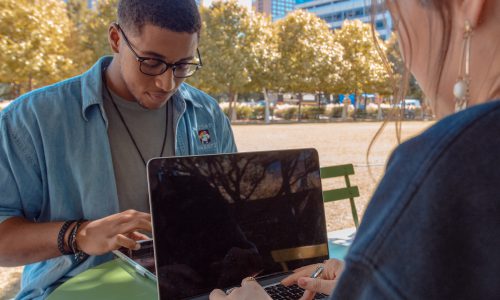In the absence of in-person meetings, most companies are now offering job interviews to be conducted virtually. Video interviews are the new normal in the current job market amid the pandemic. According to hiring managers, there are many benefits of video interviews that include:
• More flexibility around scheduling the interview
• The ability to assess candidates by observing visual cues
• Increased access to talent in other parts of the globe
• Option to save video interview recordings for employee training purposes, etc.
These are all benefits of video interviewing according to hiring managers and recruiters. So how do job candidates feel about them?
Let’s first assess how video interviewing has affected various candidates. Here are explanations to some frequently asked questions:
How easy is it to conduct a virtual interview?
“Since video has taken many parts of peoples’ lives nowadays, it’s already a reality in the job market,” says Sophia Wrench, a business writer at Lia Help and OX Essays. “As video chat platforms grow more dominant in personal and professional lives, most candidates are often comfortable taking part in virtual interviews. In fact, the newest generation of job seekers is already familiar with the technology and is more comfortable than other generations to appear on camera. While video interviews may not be for everyone, if you’re able to play and record YouTube videos, or Skype someone regularly, then video interviewing for a job should be easy for you.”
How is it more convenient than in-person interviews?
For both candidates and hiring managers, video interviews offer convenience for everyone involved. There’s no need to plan around schedules that often involve travel, and there’s no need for special equipment when people can easily use their smartphones or computers and log in from anywhere. As a result, video interviews save people time and travel costs when compared to traditional in-person interviews.
How can video interviews create opportunities?
Video interviews are especially convenient for job candidates who may be applying for roles outside their current location. Videos make instant connections possible and face-to-face interviews a reality for both hiring managers and candidates. Hiring professionals can leverage videos as an opportunity to open up positions to a much wider talent pool that is not confined to any one city in particular.
What are some benefits of video interviews, from an employer’s perspective?
Video interviews can make companies appear more innovative, relevant, and tech-savvy to prospective employees. Offering candidates the option to interview virtually makes it easier for hiring managers to attract equally creative and tech-savvy applicants, thus boosting their company’s employer brand.
What are the downsides to video interviews?
“While video interviews can help candidates stand out while being convenient and easy for them, there are many things that can still go wrong in such interviews,” says Madison Bannerman, a blogger at Paper Fellows and State of Writing. “When not used correctly, video interviews create a negative candidate experience during the interview process. Whether it’s because of connectivity issues, poor quality in audio or video, or general discomfort from being on camera, something can go wrong in the interview. Therefore, hiring professionals must provide each and every one of their candidates the best ways for them to feel comfortable in the interviewing process. That means, ensuring the candidates that video interviews are right for them, and in good-quality picture and sound.”
Job candidates — most of them, to say the least — are comfortable with video interviewing. While video interviewing is still regarded as a relatively new concept for some interviewees, more and more people — both interviewers and candidates alike — prefer video over in-person interviews.
While video interviews can be subject to connectivity issues or a feeling of discomfort among participants conversing virtually, the right preparation goes a long way in facilitating a seamless experience for all parties involved.
As you can imagine, video interviewing has not only created an exceptional candidate experience, but it has also made remote hiring processes possible and more efficient. As hiring professionals find it easier to pre-screen candidates, both parties can save time and money. As more companies adjust to virtual interviews, it’s safe to say that video calls are here to stay.





